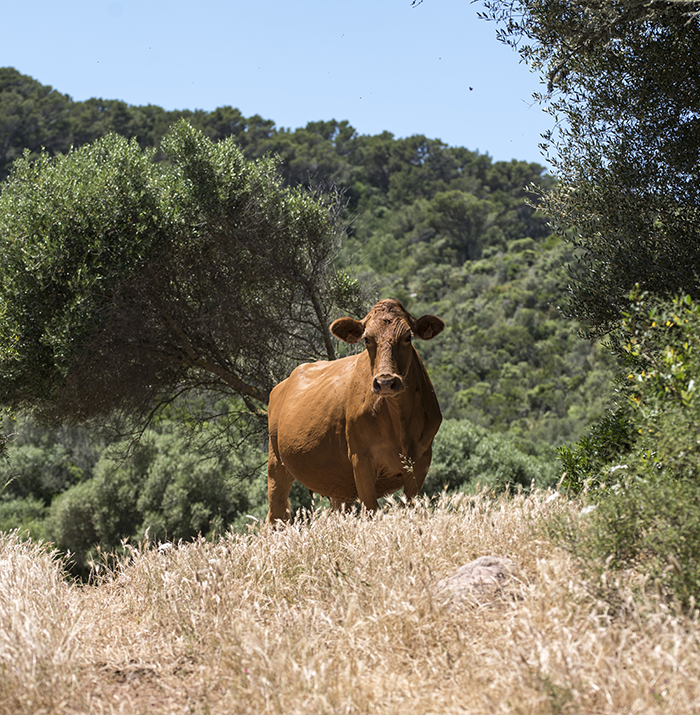What is the solution?
Promotion of beef production methods that focus on small-scale farms integrating cattle with a local mixed landscape over large-scale grazing or feed consumption.
This solution improves our resource security in the food category.
How does it #MoveTheDate?
Rearing livestock in environments that preserve trees and forests allows for the sequestration of significant amounts of carbon dioxide, the stewardship of local ecosystems and traditional cultural heritages, and for the generation of fair economic revenue in support of local communities.
How is it scalable?
The large majority of global beef is produced at scale, with production methods which require either significant amounts of land and/or resources. There is therefore a large potential to transition production to more sustainable methods. By working in concert with the local environment and applying beneficial management practices, smallholder farms of Menorca’s Custòdia Agrària programme were able to reduce the Footprint of beef production by up to 64% compared to conventional methods.
What is the solution?
Promotion of beef production methods that focus on small-scale farms integrating cattle with a local mixed landscape over large-scale grazing or feed consumption.
This solution improves our resource security in the food category.
How does it #MoveTheDate?
Rearing livestock in environments that preserve trees and forests allows for the sequestration of significant amounts of carbon dioxide, the stewardship of local ecosystems and traditional cultural heritages, and for the generation of fair economic revenue in support of local communities.
How is it scalable?
The large majority of global beef is produced at scale, with production methods which require either significant amounts of land and/or resources. There is therefore a large potential to transition production to more sustainable methods. By working in concert with the local environment and applying beneficial management practices, smallholder farms of Menorca’s Custòdia Agrària were able to reduce the Footprint of beef production by 64% compared to conventional methods.
 Approaches based on agroecological regenerative practices that lessen the environmental damage of conventional agriculture and farming techniques are sustainable in the long-term, protect and restore the surrounding landscape and biodiversity, and take into account the interconnectivity of ecosystems; they respect animal health and welfare and help mitigate climate change and adapt to its impacts, while preserving biodiversity and promoting regeneration. Such food systems foster local development in their territories with new models of governance that involve and hold all local stakeholders accountable with a community-based and participative approach. Small-scale producers are empowered so they become agents of change for the necessary transition to sustainable and fair food systems. Creativity and networking foster knowledge sharing, collective understanding, and mentorship needed to build a better future, leading to innovation, creativity and social entrepreneurship.
Approaches based on agroecological regenerative practices that lessen the environmental damage of conventional agriculture and farming techniques are sustainable in the long-term, protect and restore the surrounding landscape and biodiversity, and take into account the interconnectivity of ecosystems; they respect animal health and welfare and help mitigate climate change and adapt to its impacts, while preserving biodiversity and promoting regeneration. Such food systems foster local development in their territories with new models of governance that involve and hold all local stakeholders accountable with a community-based and participative approach. Small-scale producers are empowered so they become agents of change for the necessary transition to sustainable and fair food systems. Creativity and networking foster knowledge sharing, collective understanding, and mentorship needed to build a better future, leading to innovation, creativity and social entrepreneurship.
You can learn more about such fair and sustainable food systems here.
There’s no benefit in waiting!
Acting now puts you at a strategic advantage in a world increasingly defined by ecological overshoot. Countless solutions exist that #MoveTheDate. They’re creative, economically viable, and ready to deploy at scale. With them, we can make ourselves more resilient and #MoveTheDate of Earth Overshoot Day. If we move the date 6 days each year, humanity can be out of overshoot before 2050.

